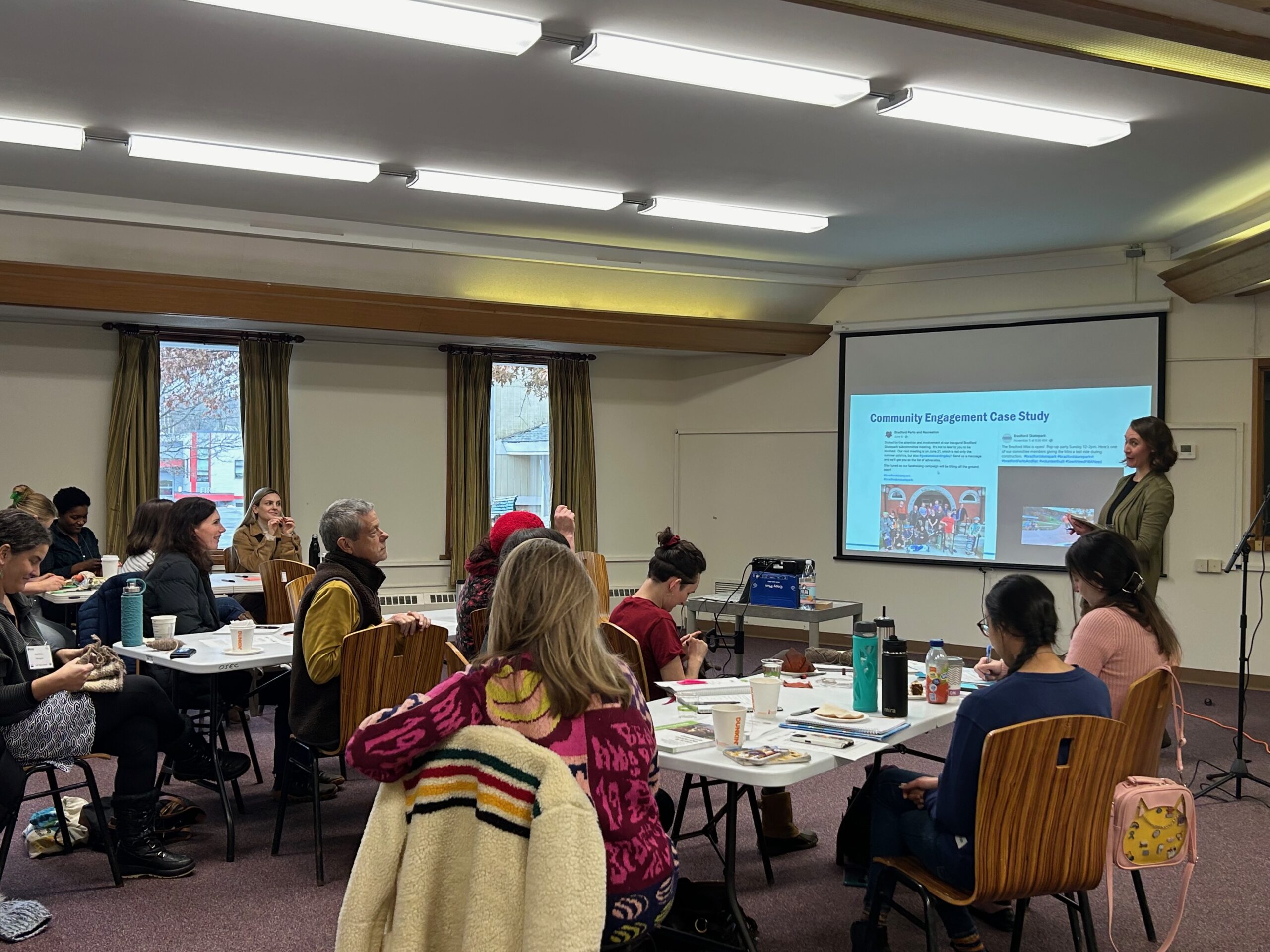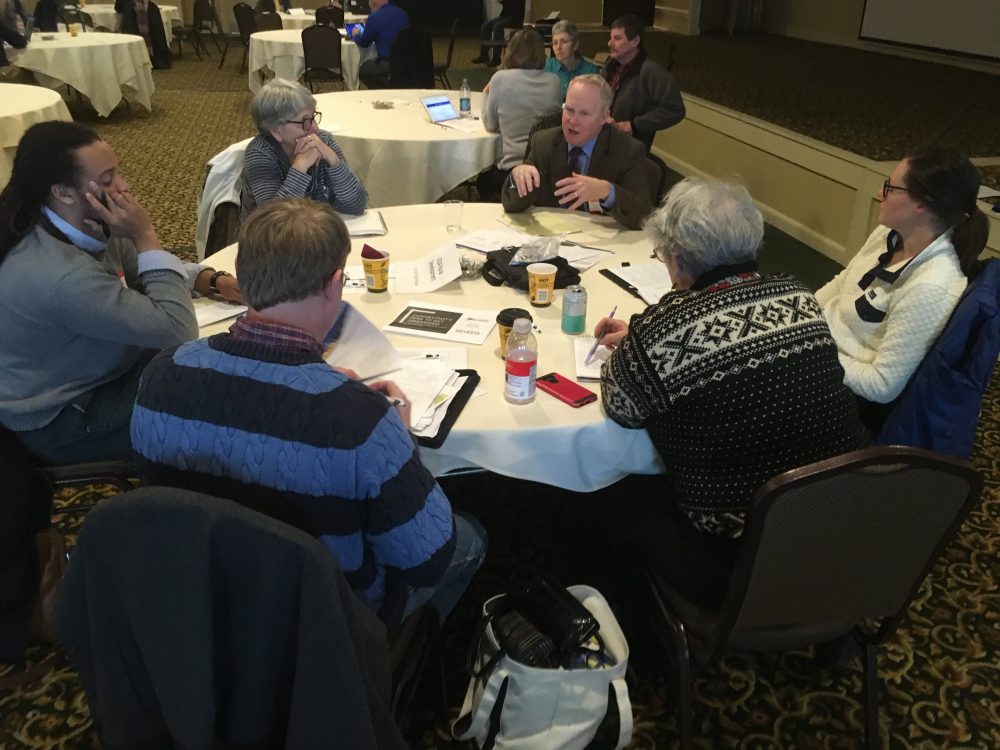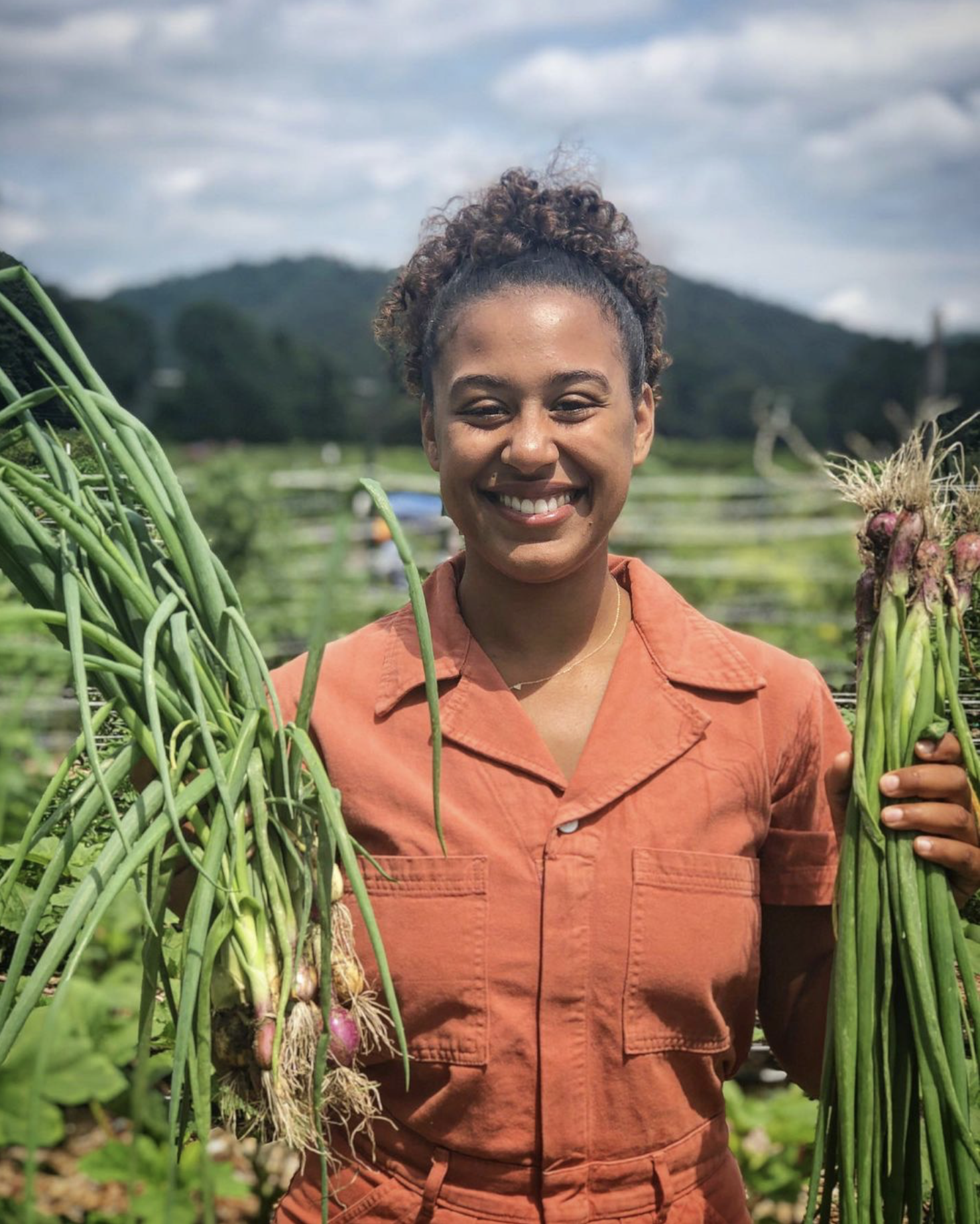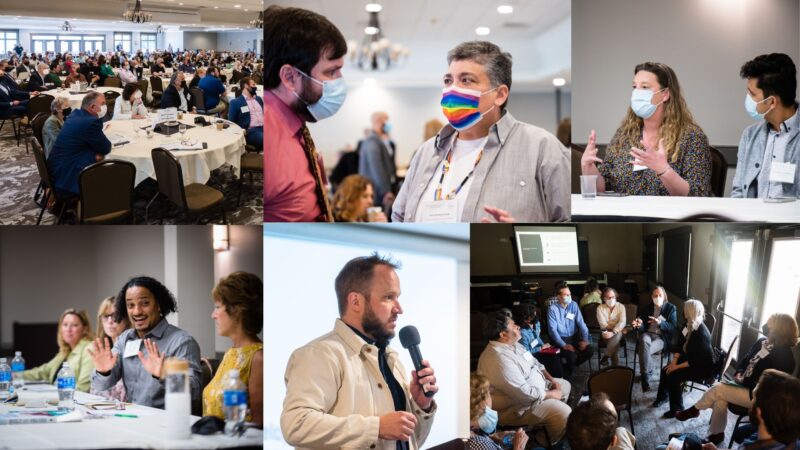
SoVT Get on Board: Working Together as a Community
Without productive dialogue, all the leadership in the world won’t lead to a successful community project. The third in-person session of the SoVT Get on Board program, “Working Together as Community,” focused on strategies for effective community engagement.
Recognizing that non-profit organizations do much important work in our communities, the unit began with a question-and-answer session with non-profit board consultant Dave Chase. Participants brought many questions about how to be an effective and engaged board member. Of special note was a conversation about how to handle situations where one as a new board member might represent a minority view, or minority demographic. Helpful suggestions came from both class members and from Dave Chase.
Among those were the need to use that opportunity to engage in frank dialog about how the board may or may not be reflecting its stated values, as well as being open about the fact that your presence may be bringing in a voice which is different from the majority, and which requires active consideration. Prospective board members were urged to be clear about their need to be heard, and various strategies were considered, including establishing an advisory committee before committing to board membership, or bringing in an additional member with a similar position, rather than going it alone.
The session then moved into two conversations about community engagement on a wider scale. Beginning with a presentation by Alyssa Johnson from the Vermont Council on Rural Development about effective community project leadership, the day wrapped up with a panel discussion with local Town Moderators Meg Mott (Putney) and Rick Zamore (Guilford).
Alyssa stressed the importance of engaging as many people as you can, as early in the process as you can. Tips and examples of this can be found in VCRD’s Community Leadership Guide. While many of the techniques in the guide are meant to get out in front of an issue becoming contentious, Alyssa suggested that one strategy to increase buy-in (and the quality of the outcome!) is to make sure your steering committee includes (and values) dissenting voices.
Another important point was the need to celebrate community project successes as a community. Whether those successes are small wins along the way, important project milestones, or a community-wide celebration of a completed project, it is important to celebrate not just the project, but the shared love of place that it represents.
In the afternoon session, participants discussed various experiences of unsuccessful community dialogue – from ‘listening sessions’ that will clearly have no effect on the outcome, to minority opposing voices being given greater weight in community decisions because of their vehemence.
Our town moderators shared their favorite strategies for ensuring productive conversations – Rick finds that reminding participants to direct their comments to him rather than to each other keeps things much more civil; Meg asks for comments from alternating views (“And now can we hear from the opposition?”) until no new points are being made. And, according to Rick, a little humor never hurts. Both stressed the importance of a truly neutral moderator who creates the space for people to express their views.
Meg Mott also shared an effective community dialogue method, modeled on the idea of a ‘Lyceum:’ having a neutral body, such as a town library, host an event that presents all sides of a given issue. Success derives from inviting a smart, articulate representative from at least three different perspectives to share their point of view on an issue.
While sometimes it seems that our open meeting laws and public engagement processes can make things messy and difficult to navigate, we all came away with new ideas for strengthening productive participation, and a renewed sense of the ways that meaningfully including all voices can make our communities stronger, more vibrant, and more like the kind of place we want to live.
About the Southern Vermont Economy Project (SVEP)
The Brattleboro Development Credit Corporation’s Southern Vermont Economy Project provides training and technical assistance to increase local capacity, skills, and resources in order to advance local projects critical to Southern Vermont achieving community, economic, and workforce development goals. SVEP is funded through the USDA Rural Community Development Initiative. For more information please visit: https://brattleborodevelopment.com/svep/



